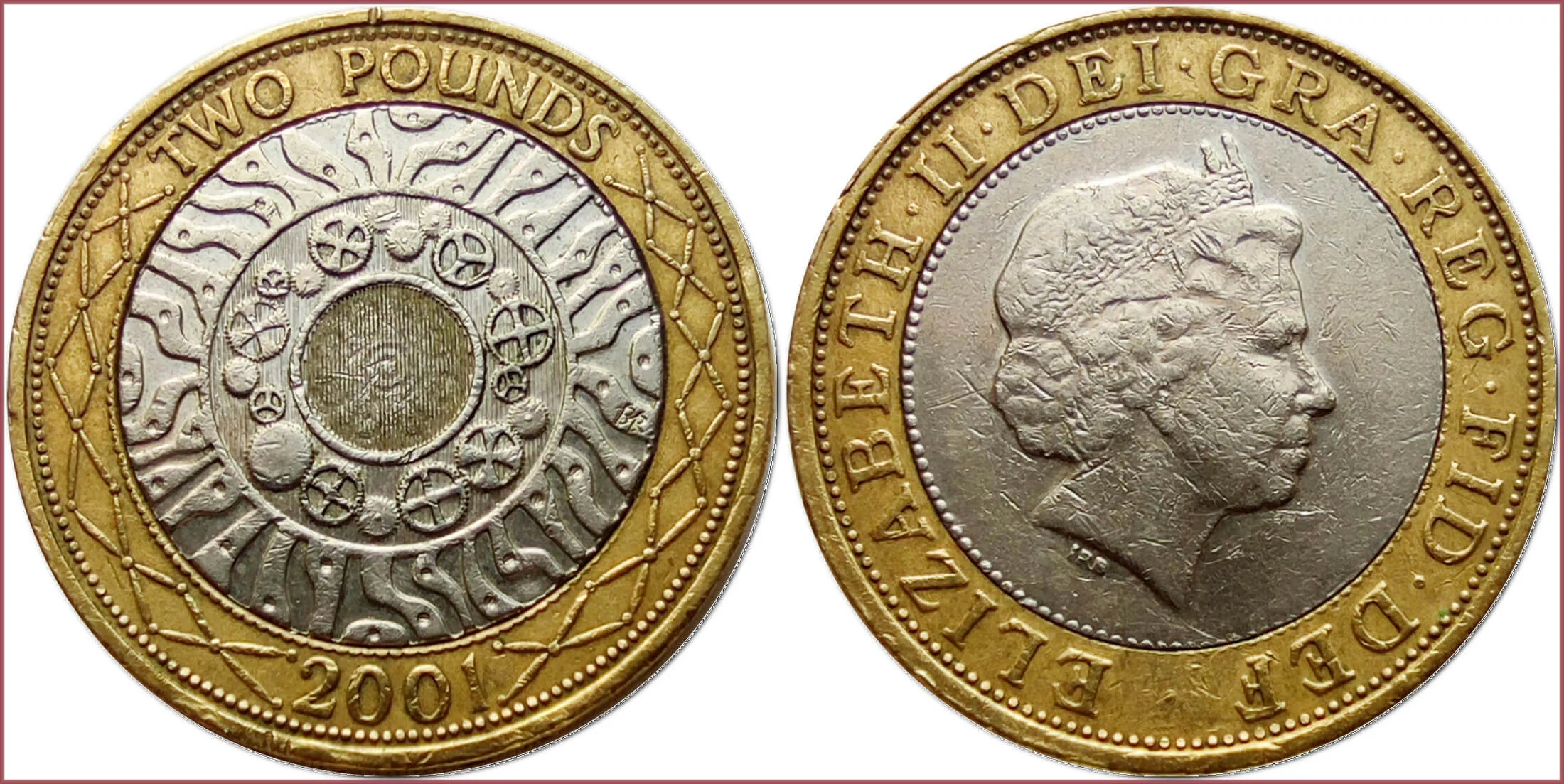POUND: COIN OF UNITED KINGDOM
2 pound, 2001: United Kingdom
TWO POUNDS.
BR — micro-inscription: initials of engraver Bruce Rushin.
Allegorical composition: scientific and technological progress — from the Iron Age to the age of the Internet (4 concentric circles representing the Iron Age, Industrial Revolution, silicon chip and the Internet).
ELIZABETH II DEI GRA REG FID DEF: Latin "Elizabeth II Dei Gratia Regina Fidei Defensor" — Elizabeth II by the Grace of God Queen Defender of the Faith.
Abbreviation IRB under the portrait of Elizabeth II: engraver Ian Rank-Broadley.
The inscription on the edge of the coin: STANDING ON THE SHOULDERS OF GIANTS (the famous phrase of Isaac Newton — a metaphor which means "using the understanding gained by major thinkers who have gone before in order to make intellectual progress").
Royal Mint (Llantrisant, United Kingdom).
Mintage: 34.984.750.
- Bimetallic — copper-nickel centre in brass ring: 28 mm - 12 g
- Reference price: 2.5$
COIN POUND — WHERE & WHEN (coins catalog: by names & emitents)
- UNITED KINGDOM (from 16th century): pound = 100 penny (before 1971 — pound = 4 crown = 10 florin = 20 shilling = 240 penny = 960 farthing)
Most numismatic dictionaries that describe the pound coin call it one of the oldest in the world. However, it is probably more correct to talk about the ancient pound as a conventional unit of measurement of money, and not as an actual coin with such a denomination. After all, the oldest coin, denominated in pounds, can only be found in the not-so-distant in historical terms the 16th century.
Also, the pound is rightfully considered one of the most widespread currencies in the world (mostly only in the form of banknotes), and a coin with this name was issued by dozens of issuers at different times — but, for the most part, with the exception of the United Kingdom, all these coinage pounds were issued by British dependencies:
- British Antarctic Territory, Cyprus, Egypt, Falkland Islands, Gibraltar, Guernsey, Isle of Man, Jersey, Biafra, Ascension Island, Saint Helena, Tristan da Cunha, South Africa, South Sudan, Sudan, Rhodesia...
About the name of the coin pound: the name of the pound coin has several variants of the origin story.
According to the main version, the sterling silver coin was widely used in the British Isles almost a millennium ago. The weight of 240 such coins was equal to a pound (weight about 350 grams; Wikipedia — "The English word pound derives from the Latin expression "lībra pondō", in which "lībra" is a noun meaning "pound" and "pondō" is an adverb meaning "by weight"). That's why they said — pound sterling (over time — just pound).
By the way, until 1971, the British pound consisted of exactly 240 pence.
That is, the name of the pound coin came from the name of the British ancient weight unit of the same name.

